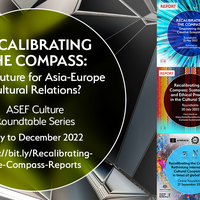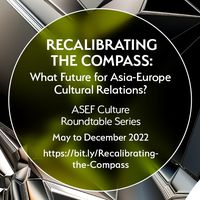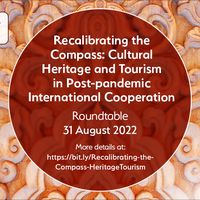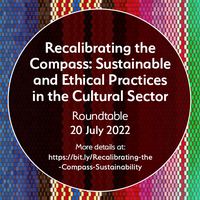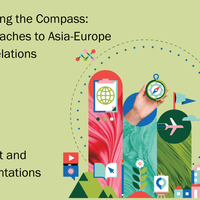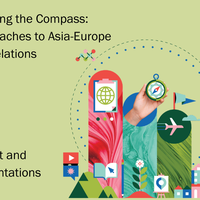ASEF Roundtable #4: Recalibrating the Compass | Cultural Heritage and Tourism in Post-pandemic International Cooperation

As part of the series “Recalibrating the Compass: What Future for Asia-Europe Cultural Relations?”, ASEF Culture will organise its fourth roundtable addressing current challenges in the field of cultural heritage, including its relationship with tourism and other social and economic aspects.
Some of the themes that will be addressed include:
- The impact of the Covid-19 pandemic on heritage institutions and cultural tourism
- The digitisation of tangible and intangible cultural heritage
- The increasing demand for heritage programmes and venues to involve local communities and reflect the views of voices and narratives
From the perspective of international cooperation, there are several good-practices connecting museums, archives and other heritage institutions in Asia and Europe, which can illustrate the potential and the difficulties existing in this field. International cooperation today is underpinned by a range of debates and processes, including calls for the restitution of cultural artifacts to their countries of origin, as well as discussions on cultural appropriation.
In the light of these themes, the roundtable will also consider what policies, support mechanisms and forms of cross-regional collaboration can enable cultural organisations and professionals to be better prepared to act in this context.
The highlights of roundtable #4: Recalibrating the Compass | Cultural Heritage and Tourism in Post-pandemic International Cooperation will be available after the event on culture360 social media channels. In addition, a comprehensive report of the roundtable will be published on culture360.
Key Highlights from the Roundtable
Local communities and sustainable tourism
Heritage sites are living sites and local communities are at the centre of them. Administrators and policy makers need to involve these communities more actively in managing and preserving them.
Tourism is an accelerator of processes, often driving heritage preservation. While this economic drive is essential for the survival and development of heritage sites, it is also essential to make it more sustainable in the long term. This can only be done by involving local communities in the processes.
What did we learn from the pandemic?
The pandemic has taught us how to be more resilient and apply risk management as a possible way to learn and create better policies so as to prepare if new crisis occur in the future.
With the lift of the pandemic restrictions on travel, a new wave of tourism is expected to visit heritage sites. While many are eager to welcome tourism back, limiting the daily number of entries and channelling flows to smaller sites should be considered to protect the sites and the communities living around them.
New methodologies post-pandemic
Digitisation of collections has been at the centre of the strategies of many museums, bringing collections outside of the physical space and making them more accessible to younger generations. However, it is important to question the sustainability of digitisation in the long term. Is this effective for all museums?
Several online platforms have been developed with the pandemic to share methods and diversify approaches in supporting cultural heritage management across different countries. These shared platforms bring heritage managers closer to each other in a more sustainable way. They also reduce the risk of cultural appropriation and cultural conflict.
Recalibrating the Compass: What Future for Asia-Europe Cultural Relations? aims to facilitate conversations on pressing themes for the arts and culture communities in Asia and Europe with a view to designing a new, more resilient, and participatory approach for the future. The series will culminate in a public webinar in late 2022, where findings and recommendations from the roundtables will be shared and discussed in an open forum.
Click here for the Report of roundtable #4 and stay tuned for the launch of roundtable #5 on Rethinking cultural diplomacy in times of global crisis.
Powered by Froala Editor
Similar content
from - to
20 Jul 2022 - 20 Jul 2022
posted on
26 Jun 2023

